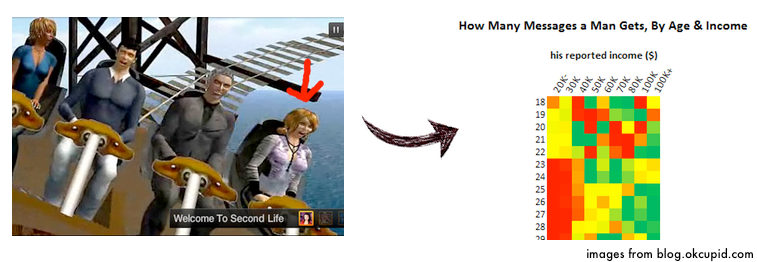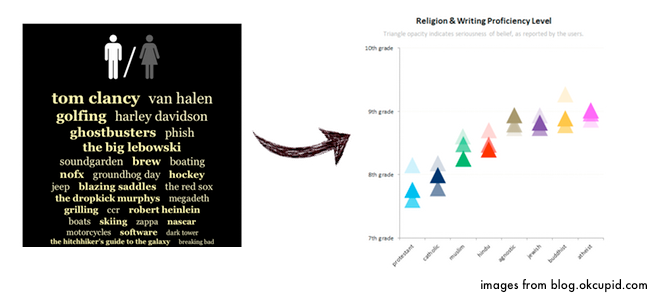Many people I work with tell me they’re worried about using something other than a bar chart to visually represent their data, primarily because they think their audience isn’t ready for it. They are, very reasonably, expressing their concerns about about visual literacy (which I’ll discuss more at another time). I hope to break down this worry by presenting techniques to work around it. In this post I’ll start by pointing to a website from a company that does another kind of therapy – the online dating site OkCupid.
OkCupid, seeing their data as an asset, used to publish an insightful and entertaining blog called OkTrends. They were trying to come up with dating / relationship advice for people based on their warehouse of dating data. My goal in sharing this example isn’t to help you take more attractive pictures of yourself – but rather to talk about the way they share their complex data. These are very nerdy statistics people, but they present their data in entertaining and informative way. After reading their blog for a while it became clear to me that they serve as a great example of some of the presentation strategies I like best. Here are two examples that showcase how they start with something simple and build to something complex.
In a post about lies people tell online they start off with a cartoon-based joke about pretending to be someone you’re not. Through their explanation they move to a complex, uncommon visualization showing how often men get contacted base on their age and income.
In another post, about what white people actually like, they start with a tag cloud of what people have said they are interested in. Over the course of a single post they move to a complicated, multi-dimensional graph that correlates religious beliefs to writing proficiency. Crazy.
What You Should Do:
Don’t worry about having an overly-complex data story. Start with something simple and fun to get your audience interested, then they’ll be ready for your more complex data presentation once you get to it.



2 thoughts on “Are You Complexity-Phobic?”
Comments are closed.